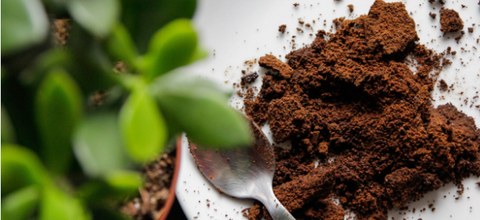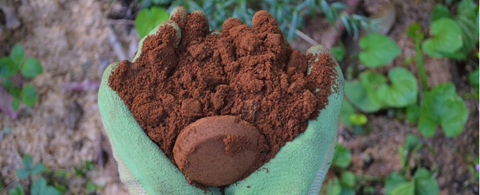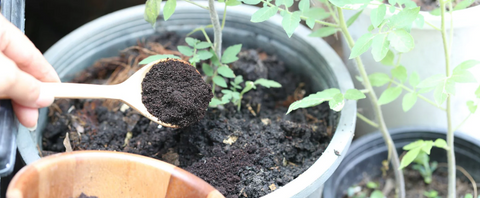Whether you're a daily coffee connoisseur or you've noticed local coffee shops introducing bags of used coffee, the idea of composting coffee grounds might have crossed your mind. Is using coffee grounds as fertilizer a good idea? How do coffee grounds for gardens contribute or potentially cause harm? Let's explore the perks and pitfalls of incorporating coffee grounds into your gardening routine.

Composting Coffee Grounds
Composting coffee grounds is an excellent way to repurpose something that would otherwise occupy landfill space. Coffee grounds contribute nitrogen to the compost, enhancing its nutrient profile.
Composting coffee grounds is as simple as tossing used coffee grounds onto your compost heap. Used coffee filters can also be composted. If you're adding used coffee grounds to your compost, remember that they're considered "green" compost materials and need to be balanced by adding some "brown" compost materials.
Coffee Grounds as Fertilizer
The use of coffee grounds for gardening goes beyond composting. Many gardeners opt to directly apply coffee grounds to the soil as a fertilizer. While coffee grounds add nitrogen to compost when decomposing, they don't immediately release nitrogen into the soil.
The benefits of using coffee grounds as fertilizer include enhancing soil drainage, water retention, and aeration by adding organic matter. Used coffee grounds also support the thriving growth of beneficial microorganisms vital for plant health and attract earthworms.
Some believe that coffee grounds lower soil pH (increase acidity), benefiting acid-loving plants. However, this only applies to unwashed coffee grounds. Fresh coffee grounds are acidic, but used coffee grounds are neutral. If you rinse used coffee grounds, their pH will be close to neutral (6.5) and won't affect soil acidity.
To use coffee grounds as fertilizer, place them around the plants in the soil. Leftover diluted coffee works well in a similar fashion.
Other Uses for Used Coffee Grounds in the Garden
Coffee grounds have additional applications in your garden:
• Many gardeners use used coffee grounds as mulch for plants.
• Coffee grounds are believed to deter slugs and snails from plants due to the caffeine content.
• Some claim that scattering coffee grounds on the soil acts as a cat repellent, preventing cats from using your flower beds and vegetable plots as a litter box.
• If you're using a worm bin for vermicomposting, you can feed coffee grounds to the worms. Worms thrive on coffee grounds.

Using Fresh Coffee Grounds
We often receive questions about using fresh coffee grounds in the garden. While not always recommended, it shouldn't be an issue in certain scenarios.
For instance, you can sprinkle fresh coffee grounds around acid-loving plants like azaleas, hydrangeas, blueberries, and lilies. Many vegetables appreciate slightly acidic soil, but tomatoes might not respond well to added coffee grounds. On the other hand, root crops like radishes and carrots generally thrive, especially when mixed with the soil during planting.
Using fresh coffee grounds is also thought to suppress weeds, exhibiting some allelopathic effects that can negatively impact tomato plants. It's another reason to exercise caution. However, it seems to help deter pests like cats, rabbits, and slugs, minimizing their harm in the garden. This is believed to be due to the caffeine content.

To avoid any potential issues from caffeine in fresh, unbrewed coffee grounds, consider using decaffeinated coffee or incorporating only minimal amounts of fresh coffee grounds.
In conclusion, the fusion of coffee grounds and gardening is a natural fit. Whether you're composting coffee grounds or using used coffee grounds in your yard, you'll discover how coffee can breathe life into your garden.









